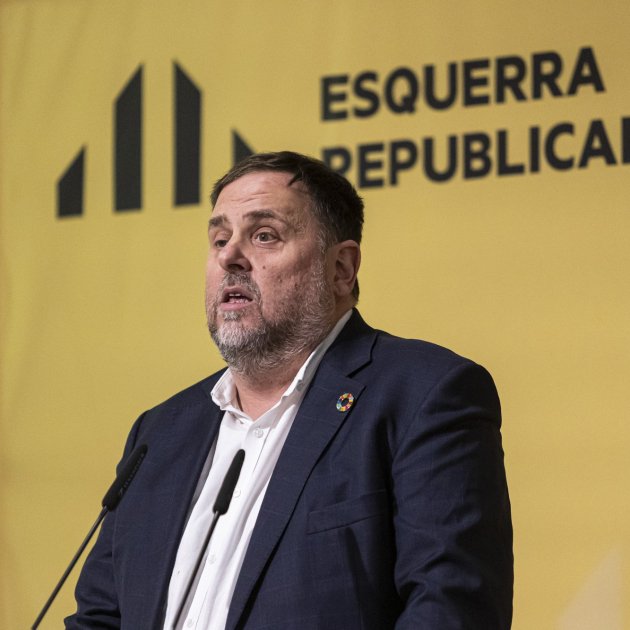The legal representatives of the Spanish government have asked the country's Supreme Court to substitute the sentence of 13 years' prison and disqualification from public office imposed on the ERC party leader and former Catalan vice-president, Oriol Junqueras, it with a penalty of 7 years of disqualification, after the reform of Spain's Penal Code which repeals the crime of sedition and modifies that of misuse of funds. In a submission to the court, the Spanish state solicitors addressed the judges of the court that tried pro-independence leaders over the 2017 Catalan referendum and imposed the sentence of 13 years' prison and disqualification on Junqueras for the crime of sedition in conjunction with misuse of funds. The Supreme Court had given eight days to the defence and prosecution teams to submit their views on the impact of the criminal law reform on the sentences decided in October 2019.
The state legal services also ask the Supreme Court to reduce the ban on holding public office imposed on the former speaker of the Catalan Parliament, Carme Forcadell (from 11 years and six months to 6 years and six months), on the social leaders Jordi Sànchez and Jordi Cuixart (from 9 to 4 years), on the former government ministers Raül Romeva, Jordi Turull and Dolors Bassa (from 12 years to 6 years and 9 months), and on two other ministers, Joaquim Forn and Josep Rull (from 10 years and 6 months to 6 years and 3 months).
In a 39-page document, the state solicitor states that she considers it appropriate to reduce Junqueras's ban to 7 years, "taking into account the penalties provided for in article 433 of the Penal Code, which punish the use of public assets for purposes other than what was intended, and article 557.2, relating to public disorder" in appreciating "the conjunction of both crimes". The court that heard the trial of the pro-independence leaders will have to review the penalties imposed in 2019 to apply the version of the Penal Code which is most favourable to the convicted, as set down by article 2 in the code. Although the Supreme Court has asked all parties for their views, it will be the court, presided over by judge Manuel Marchena, who will in the end decide what the revised sentence will be, bearing in mind that in June 2020, the Spanish government partially pardoned the nine leaders, excusing them from their prison sentences while maintaining the bans on holding office.
Sentences should remain the same, say prosecutors
In fact, on Wednesday, the Spanish public prosecutors of the Supreme Court presented their own interpretation of how the new regime of crimes and penalties should apply to the nine pro-independence leaders who received jail sentences after the 2019 trial. They assert that the bans on holding public office imposed on four of the prisoners - Oriol Junqueras (13 years), Raül Romeva, Jordi Turull and Dolors Bassa (12) - should not be reduced after taking into account the Penal Code reform. According to the prosecutors, despite the repeal of the crime of sedition, the court should maintain the bans imposed on office at the same level as 2019 because their duration falls within the range provided for the crime of aggravated misuse of funds (between 10 and 20 years), which they assert that the pro-independence leaders committed. On the other hand, the prosecutors do open the door to sentence reduction for other five leaders given jail sentences as a result of the trial.
The Spanish public prosecutors take this position in response to the request by the criminal chamber of the Supreme Court, which asked the parties to send their briefs before deciding how the reform of the Penal Code affects the bans on holding office of the convicted pro-independence leaders. The prosecutors who took part in the 2019 trial, Fidel Cadena, Javier Zaragoza, Jaime Moreno and Consuelo Madrigal, argue that the actions of Junqueras, Romeva, Turull and Dolors Bassa constitute of the crime of aggravated misuse of funds contained in articles 432 and 432 bis of the new amended Penal Code.
